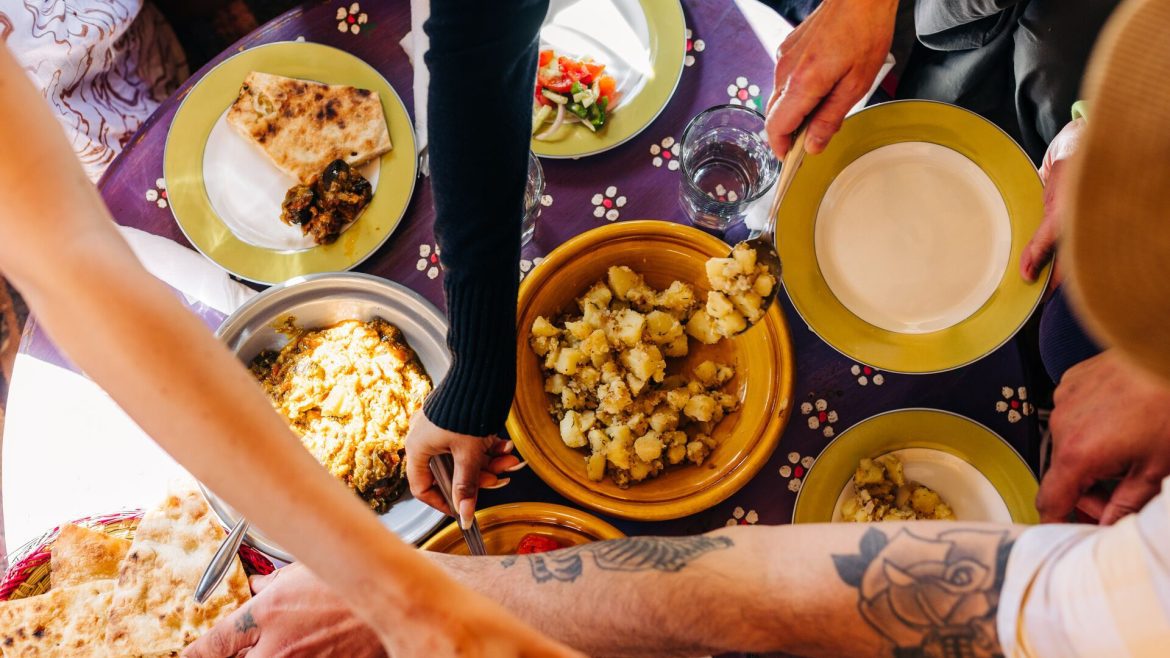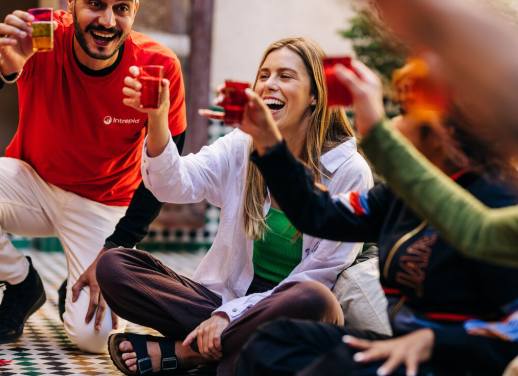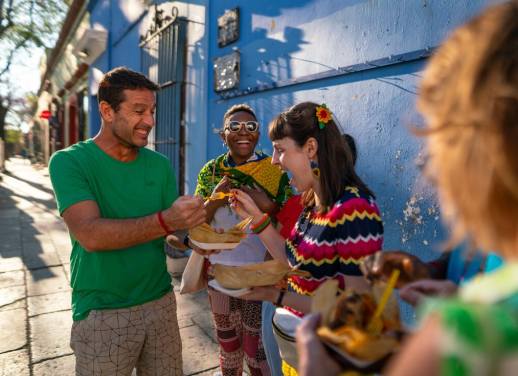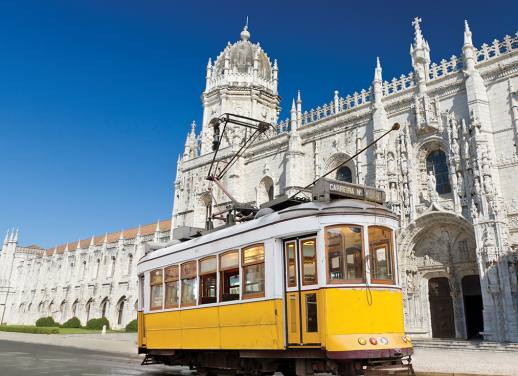I never would have predicted that, of all the highlights of my 12-day trip to Morocco, meals would be one of them.
Make no mistake, my low expectations had nothing to do with Moroccan cuisine, which I’d argue is loved around the world. Simply put, I’ve never been a foodie. Can I appreciate a high-quality meal and excellent service? Absolutely. But you’ll never find me planning weekends away or holidays abroad around restaurants to visit or dishes to try. I saw food as fuel to power me around a new city and convenience trumped experience every time. Yet, all of this changed at an unassuming little cafe tucked in the High Atlas Mountains – a place that challenged and ultimately changed my perspective on food and the people who make it.
It was day two of our trip, and we had just finished wandering through the Ksar of Ait Benhaddou, a magnificent 11th-century citadel hidden in the foothills of the Ouarzazate province. Foreheads damp and cheeks sporting a faint layer of ochre dust, we welcomed the news it was time for lunch. Within minutes our trip leader Brahim had led us to Tawesna Salon de The, a restaurant I’d soon learn was about much more than dishing up food.
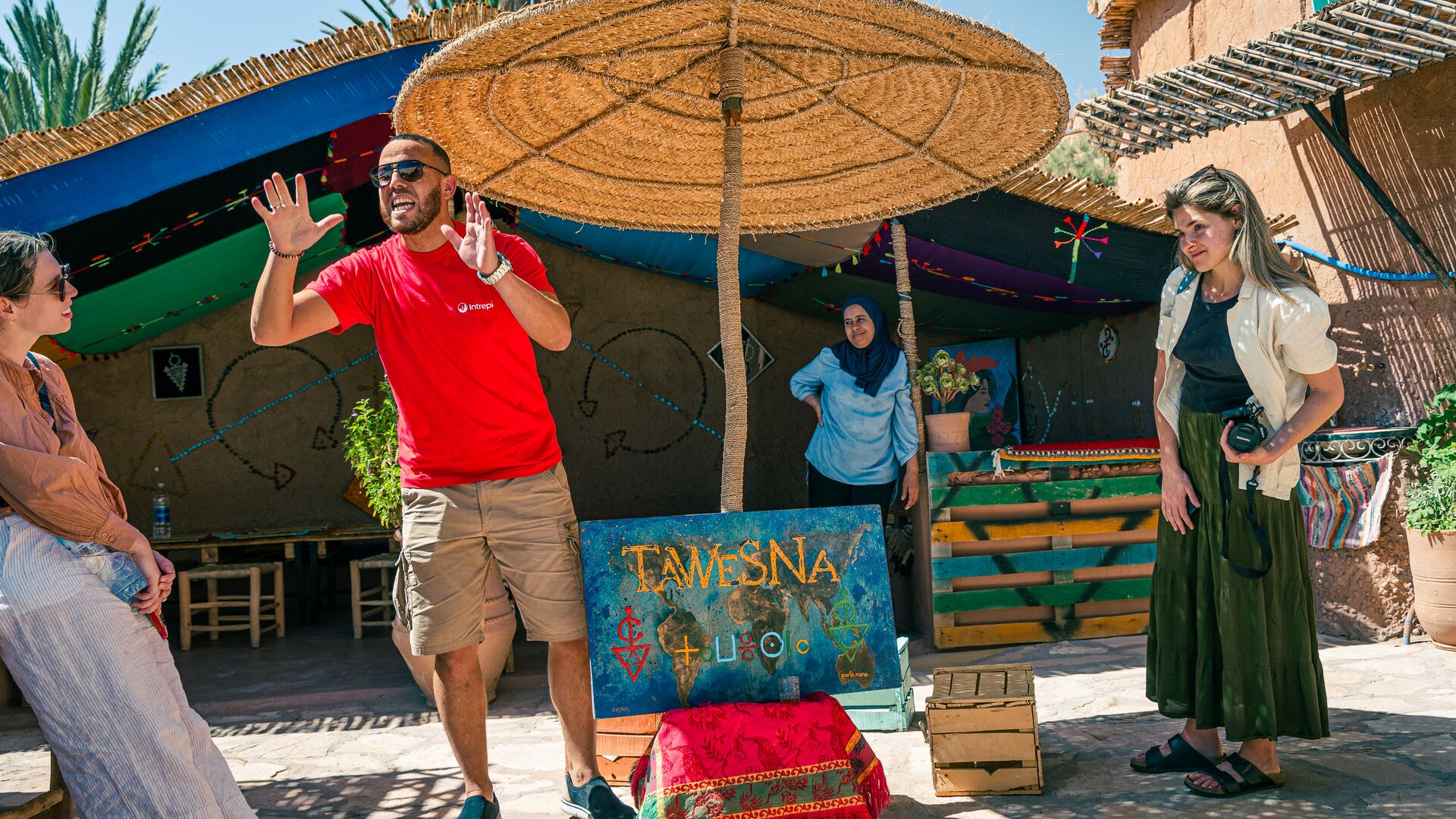
Like the rest of the Ksar, the open-air eatery’s clay walls blended seamlessly into the surrounding landscape. Taut sheets of beige canvas stretched across the courtyard, casting triangles of shade over the low wooden tables. Brightly coloured cushions and patterned straw rugs were arranged on the ground in classic Moroccan style, bringing playful splashes of colour to the space alongside vibrantly painted pottery and swaths of jewel-toned fabric. Once seated, we were greeted by Nadia Baa Bouz, a petite, kind-eyed woman who smiled shyly from behind her inky blue headscarf. As Brahim poured steaming cups of sweet mint tea, Nadia explained how Tawesna wasn’t just a place to eat but a product of the Tawesna Association, an all-women cooperative.
At that moment, a handful of women emerged from the kitchen, their arms laden with large plates. Nadia jumped up to help, and we watched the table transform into a fragrant tapestry of Moroccan cuisine – crisp tomato and capsicum salads drizzled with olive oil and garnished with parsley, steaming bowls of hearty lentil stew, fresh khobz (Moroccan flatbread) and, of course, tagines. Lifting the bright orange, blue and green lids revealed sizzling slabs of eggplant, potato, carrot and zucchini fanned around beds of buttery couscous. A warm, spicy aroma filled the air, and we could barely wait to dig in. The food was, objectively, delicious but it wasn’t the rich flavours or balanced textures that made this meal so memorable; it was the people I was with and the stories I heard.
Women in big cities like Marrakech may work and live in a way familiar to me but here in the High Atlas Mountains, opportunities to do anything beyond household duties are rare. Then, Tawesna was formed and offered a path to financial independence, Nadia explained as we dug into the feast before us. The women didn’t need fancy qualifications or specialised training either; the restaurant utilised the culinary skills they were taught as young women to generate income and grow in self-confidence.
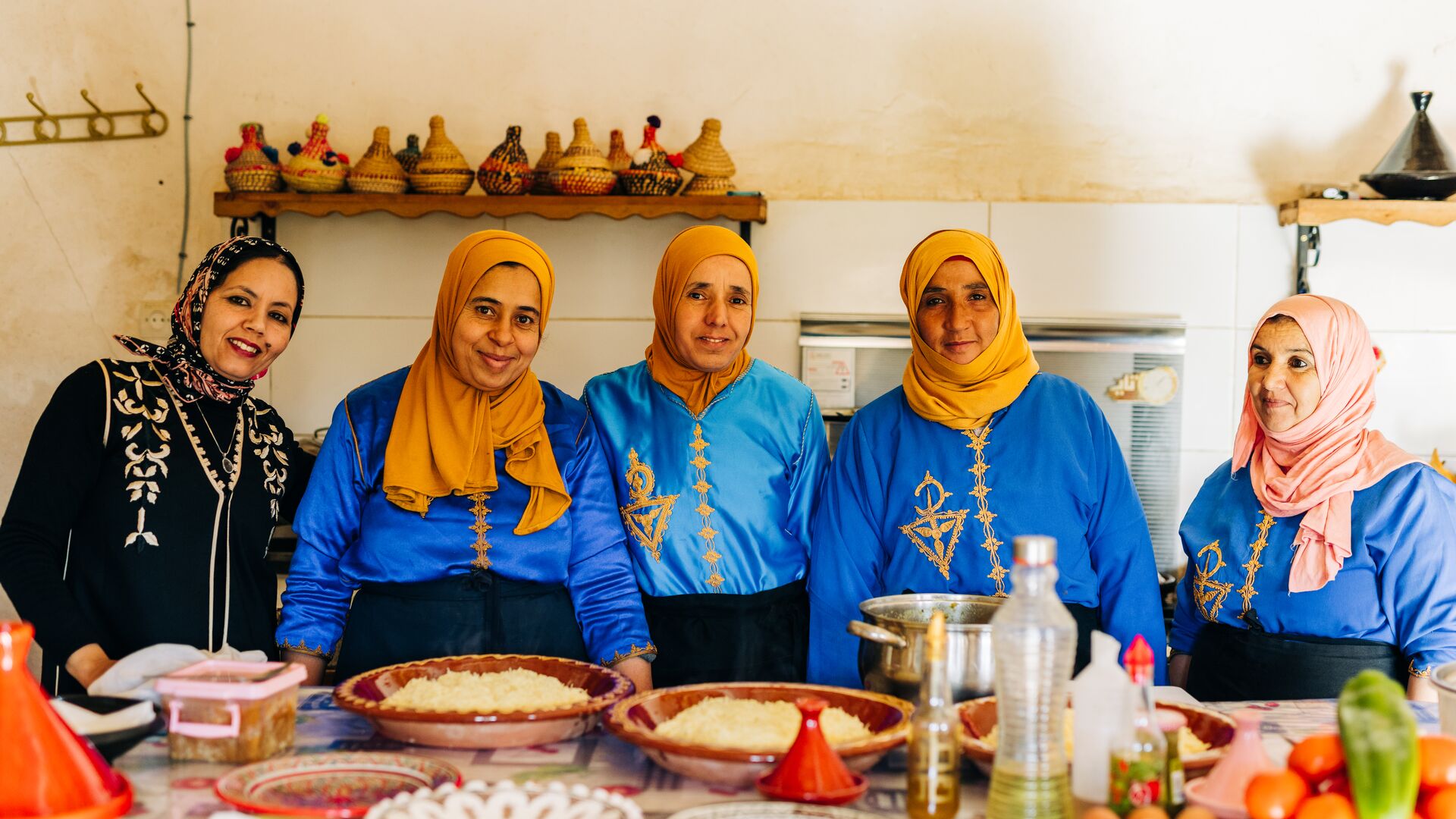
It wasn’t easy, Nadia admitted. It’s taken a few years for Tawesna to find acceptance among locals with traditional views about women and work, but today they’re proud to be a favourite spot for residents and travel groups like ours. The latter was especially important, we’re told. Financial security a benefit, but the true joy comes from meeting people from around the world. Here, in this humble restaurant, food was a bridge – a way to bring people together and connect even for an hour or two.
This deeper meaning is older than the ancient citadel walls. For as long as humans have cooked, we’ve shared meals in rituals that can be seen in old Bible verses and Instagram brunch photos. An indescribable magic happens when people sit down and share food and this is only heightened when the food is also a window into another culture, prepared by people who start as strangers but quickly become friends.
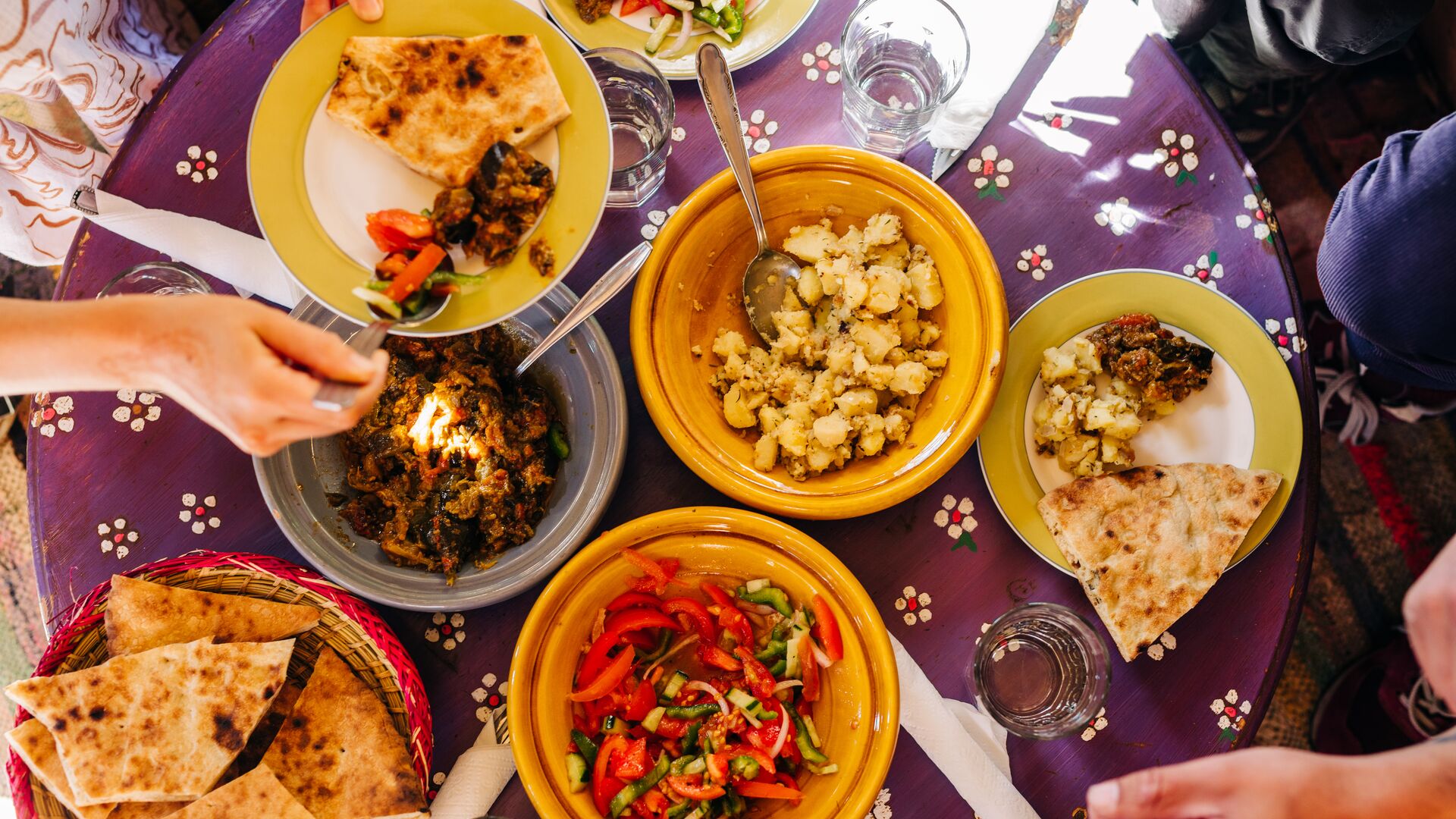
By the time we wiped our plates clean, my stomach was full and my perspective was different. I hadn’t just eaten but intimately experienced a piece of culture and found connection halfway around the globe. I’d tasted and learned, been inspired by these counter-cultural women and laughed alongside them about things as universal as family spats and dirty dishes.
The sweetness of this didn’t come from being passionate about gastronomy or an expert on spices. It simply involved being open to the opportunities presented by a plate; to see the love and culture mixed into a dish and lean into the space it creates for connections where you least expect them.
If that’s what being a ‘foodie’ while travelling means, then consider me fully on board for the next meal.
Visit Tawesna Salon de The on various trips in Morocco, including Morocco Uncovered and Premium Morocco Explorer.

